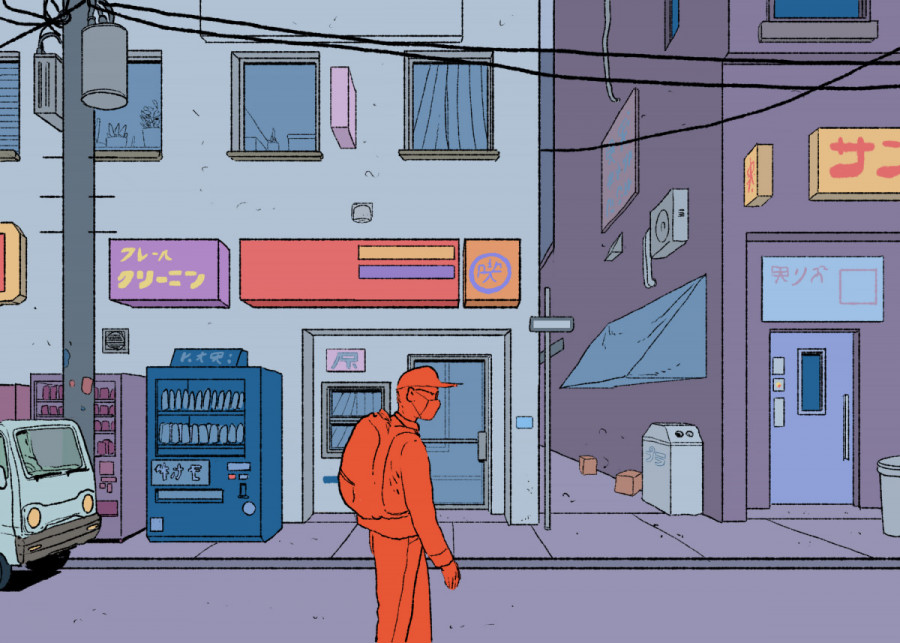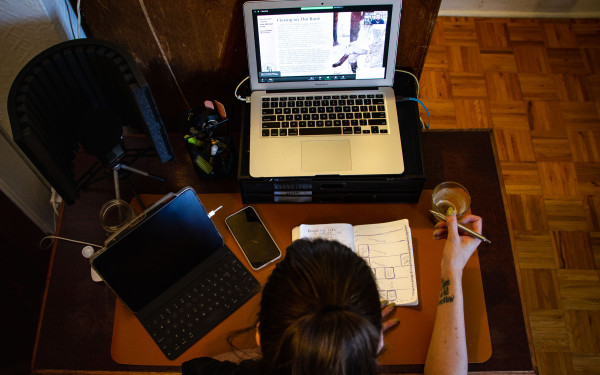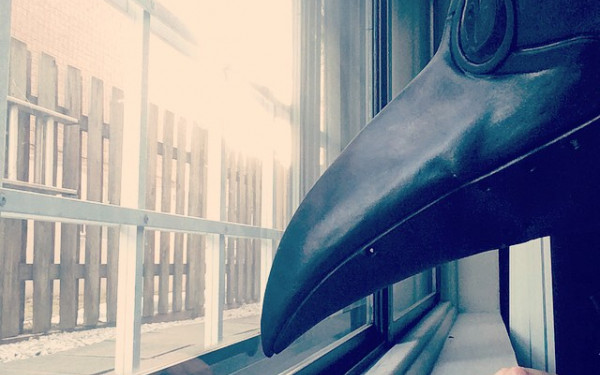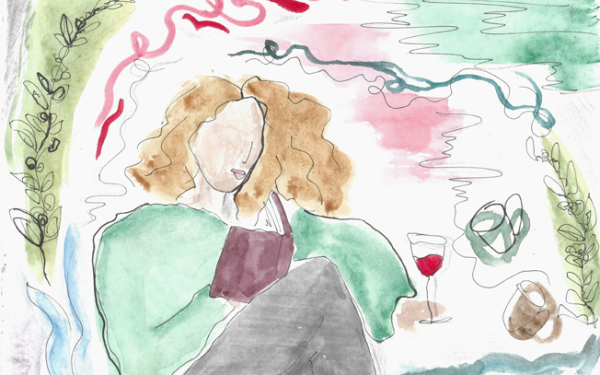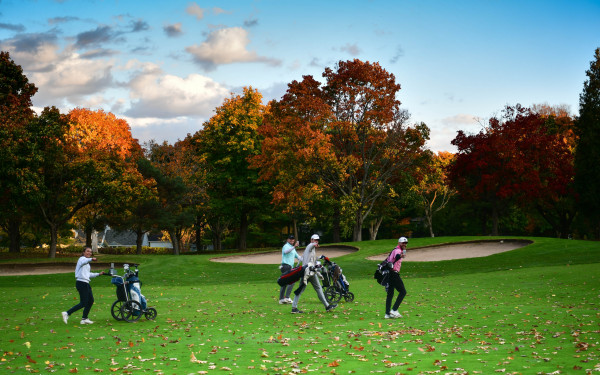Weathering the pandemic far from home
An English teacher from Montreal’s experience dealing with COVID-19 in Japan
Steven Masi is not in his home city. He is on Izu Ōshima, a tiny island in Japan only accessible by boat.
Masi, 26, is a Montreal-born English teacher and like most Montrealers his life has been impacted by COVID-19. The response to the pandemic on Izu Ōshima, however, has been quite different.
Japan has experienced COVID-19 on a different scale and timeline than Canada has. For Masi, there was a mismatch between what he was hearing from back home, and what was happening day-to-day on his 9000-population island 100 kilometres from Tokyo.
“I only began worrying when my family at home started going on lockdown,” said Masi. “Every phone call it would always be them asking ‘what’s happening with the virus there, are you OK?’”
Masi could only keep reassuring them that he was fine. Until that point, he “hadn’t taken much notice of the virus.” This was partly due to being on an isolated island in the Phillipine Sea, partly due to the laid-back approach Japanese society had been taking towards COVID-19.
Mid-March marked the beginning of lockdown in Canada. On March 20 there were 1087 total cases of COVID-19, yet in Japan, where the total number of cases at that point was roughly the same (1007 cases), mid-March marked the beginning of the annual cherry blossom season.
“I went to Ueno Park in Tokyo with some friends and there were so many people,” said Masi. “Sure, most were wearing masks … but it did not look like there was a virus going around.”
“I remember everyone saying oh my God, Europe is going through hell right now,” said Masi. “And Japan is just cruising… That worried me.”
According to Masi, attitudes in Japan started to change over time. However, there were still no mandatory lockdown rules. Instead, the pressure to stay home came from a different source—the Izu Ōshima community.
“I was supposed to go to Hong Kong at the end of February,” said Masi. “I had to cancel that, but not because the flights were cancelled, or the borders were closed. I had to cancel because I knew my coworkers would have looked at me differently.”
“I remember everyone saying oh my God, Europe is going through hell right now and Japan is just cruising… That worried me.” — Steven Masi
Rather than rely on government orders, Japanese society was regulating itself. Yet the lack of firm instructions confused him. In May during Golden Week, a week-long holiday in Japan, he held a get-together at his apartment to welcome in the new teachers. This was amidst the government asking rather than telling people to stay home during the holidays. Masi thought that since it wasn’t a law, he wasn’t doing anything wrong.
“There were 15 Japanese teachers in my house,” said Masi. “I had my window open and it got around.”
Once again, it was the community that judged him, rather than the law. “Parents started calling other teachers,” said Masi. “The next time I went to school I was told that it looks bad for a teacher to do that. There haven’t been any repercussions, I was judged more than anything.”
Masi’s school, Ōshima High School, falls under Tokyo’s jurisdiction despite being located far away from Tokyo itself. In another move that may seem unintuitive to Canadians, the school was closed to students, yet the Tokyo Metropolitan Government Board of Education gave teachers the choice to work from home or to go in. Masi chose to go in to work, partly due to societal pressure nudging him in that direction.
“It got to the point where there was no more work to do,” said Masi, laughing at the memory. “But if I chose to stay home, I had to report what I did. If I went into school though, they didn’t ask any questions.”
Despite responding to COVID-19 in a less direct way than his relatives were experiencing back home, Japan still feels like a “safe place to be” to Masi.
“The willingness of people to follow the rules here is reassuring,” said Masi. “There isn’t any fight against what the government recommends.”
Ultimately that feeling of safety was enough to convince Masi to change his plans.
“A big way that COVID-19 affected me is that I’m now staying a third year in Japan. In January I had signed off my papers saying I would not be staying,” said Masi. “I was supposed to head back in August, then they offered me another chance to extend.
“My first thought was I need to stay here because finding a job back home now in Montreal would be so difficult. My dad said I was probably on the safest island in the world right now and I’d be crazy to leave.”

